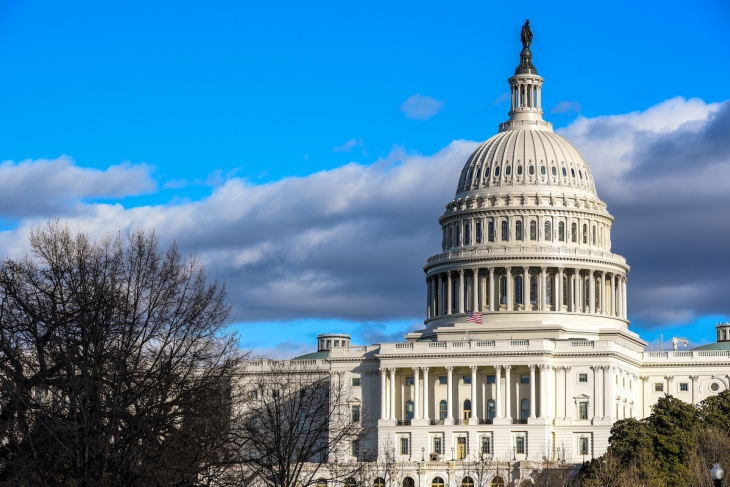Good for U.S. Secretary of Education Betsy DeVos for working on proposals to Congress urging flexibility to implement the primary federal special education law, the Individuals with Disabilities Education Act (IDEA), during school closures caused by this pandemic. The CARES Act requires her to propose, within thirty days, IDEA provisions that should be waived, if any. Notably, and perhaps overlooked, is the fact that this effort is of great importance to many stakeholders, including the wider school community beyond special education. All general and special education students, teachers, administrators, and parents want schools to function as well as possible during this crisis. Secretary DeVos represents them all. But schools cannot “flex” without congressional action.
The U.S. Department of Education (ED) has issued guidance, acknowledging that there may be a need for flexibility in how special education is provided, consistent with the need for health and safety, adding “[W]here we can offer flexibility, we will.” This guidance does not have the force of law, nor does it inoculate schools from the threat of litigation.
In normal times, many IDEA regulations and requirements are burdensome, with compliance issues often leading to litigation and the fear of litigation. That’s far from ideal, but now is obviously not normal. As schools struggle to provide even minimal education for all students, including students with disabilities, they need freedom to function as best as they can.
In this unprecedented crisis, schools need targeted, specific, and temporary flexibility around IDEA requirements related to timelines, meeting attendance, assessments, eligibility findings, specific services delivery, report writing, and due process for claims generated during and by the current crisis. Without such flexibility, the fear of lawsuits remains and diverts the focus from education for all students. Of course, schools and parents are encouraged to work collaboratively and constructively—and many do. Yet even “good faith” efforts are subject to interpretation, which can lead to litigation.
Everyone knows that we’re in a national crisis that has turned the education of more than 50 million students—86 percent of whom are general education students—upside down. Many schools are closed with no learning or far less learning through online or other means going on, approaches that themselves raise equity challenges for children without internet access. Parents are encouraged to “home school” their children. We know that many students will lose skills and regress, and may develop other challenges, as well. Schools are in a most complicated, challenging, and endlessly exacerbating reality.
Congress should act to ease the quandary schools face without delay. Ironically, if Congress does not act now, when given the opportunity to do so, attorneys arguing cases after schools reopen can easily assert that Congress intended all regulations and requirements to be enforced—even during the pandemic! It’s time to get serious.
IDEA—now forty-five years old—provides students with disabilities with an individual entitlement to a “free appropriate public education” (FAPE) to access and learn what the law calls “the general curriculum.” Among other rights, they are entitled to specialized instruction and individualized services that their parents can enforce through due process. The general curriculum is supposed to help all students gain academic, social, behavioral, and emotional knowledge and skills. Eighty to 90 percent of students with disabilities have mild or moderate needs and are mostly educated in general education classrooms. The other 10–20 percent of disabled students have severe or profound needs.
Special education, the only entitlement in our public schools, ensures that a government program provides eligible recipients (here, disabled students and their parents) with rights and other benefits—no matter the circumstances. Right now, my attorney colleagues who represent public schools are spending inordinate amounts of time and effort on the complexities that follow from that reality.
It should be understood that, in addition to the educational services that can be provided to special education students while schools are closed, many will require compensatory services after schools reopen. Well and good. Yet let’s keep in mind that almost no students will make as much progress while schools are closed as they would when attending school. (Else why have schools?) However, as stated above, special education students have due process rights to assert those claims. Others don’t.
Claims such as these highlight the need for Congress to mandate temporary flexibility so long as the general curriculum remains upended for all students. IDEA, the special education statute that provides students with disabilities with individualized services for learning and accessing the general curriculum—as the general curriculum is provided to all students—was built to ensure fairness and equity, not their absence.
Secretary Devos should urge Congress to protect schools and students, including students with disabilities, with sensible and temporary flexibility. Congress should enact them as a necessary bridge as quickly as possible. When schools reopen, we’ll have plenty of time to rethink next steps, including possible reform of this system. We may even learn something about how a suspension of procedures and other rights actually impacts students. But for now, extraordinary circumstances require an out-of-the-box approach. Congressional flexibility is a good first step.
Many stakeholders await the ED’s proposals—may they come swiftly!—and Congress’s prompt and sensible response.




